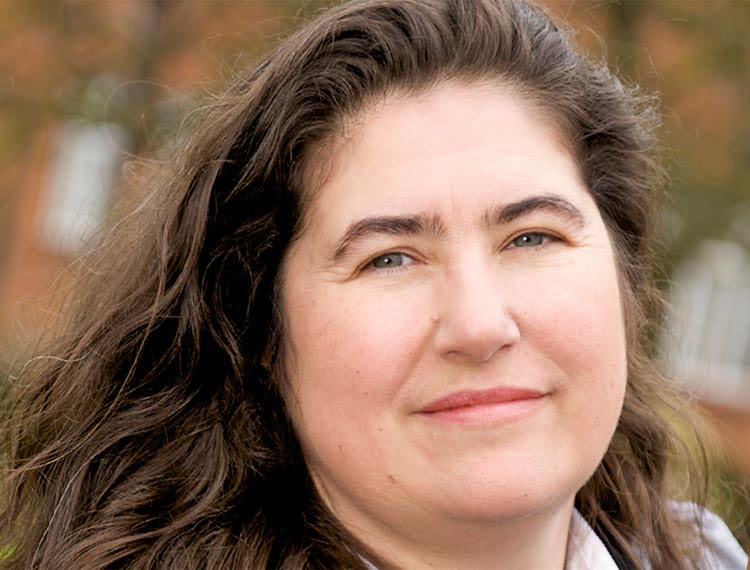Unconscious bias still excludes women from entering the boardroom #WomenOnBoards

Gender equality starts with the removal of unconscious bias that excludes women from entering the boardroom, says Lorraine Mills:
Eliminating ads with gender stereotypes to support female leaders
The 2019 SDG Gender Index, the first index tracking gender equality, has revealed that no country in the world is on the way to achieve gender equality by 2030.
The report shows that even developed countries are failing on issues such as gender budgeting, equal representation in powerful positions, and gender pay gaps, leaving women in all countries struggling for equality.
Despite these negative findings, some progress is being made to facilitate change in the United Kingdom, which is expected to eliminate some of the barriers women face.
The Advertising Standards Authority (ASA) has banned adverts that reinforce negative gender stereotypes as they restrict the choices, aspirations and opportunities of children, young people and adults and contributes to the lack of gender equality in society.
Media reinforcing negative gender stereotypes has a negative impact on women’s aspirations
Following The Female FTSE Board Report 2019, published this morning (11Jul), women make up 32% of FTSE 100 directors, up 3% from last year.
However, with the average tenure of female directors at 3.3 years, and that of men at 6.6 years, the figures raise concerns that female directors are not being fully supported in their career development, and potentially hired as a purely symbolic gesture.
The new regulations from the ASA to eliminate negative ads is a positive move towards gender equality in society at large and the workplace.
There has been research for some time showing that media reinforcing negative gender stereotypes have a negative impact on women’s aspirations and outcomes so this shift in advertising standards is a great step in rebalancing.
Women that exhibit “masculine” decision making skills more likely to be considered for top jobs
When women are hired in senior roles in order to ‘tick a box’, receiving no genuine investment in their professional development as leaders, organisations continue to perpetuate the notion that successful leadership pertains to masculine qualities.
This is also reflected in research conducted by The Myers-Briggs Company that shows 70% of women in leadership roles tend to use the ‘Thinking’ preference to make decisions in the workplace – a preference that is usually more common in men. Further down the occupational levels, women tend to exhibit a more even split between ‘Thinking’ and ‘Feeling’ preferences – the latter approach is often associated with women.
This reinforces the notion that women must exhibit behaviours that are more typically associated with men to be considered for top jobs, as leadership has long been recognised as culturally masculine. For men, the research indicates that around 80% have a Thinking preference at all occupational levels.
Our research reveals some worrying tendencies around workplace diversity and perceptions of female leaders. If companies do not approach diversity in senior leadership with authenticity and with a desire to create positive cultural change, the benefits of diverse leadership will not be realised.
While the new ad regulations are a crucial move towards equality in the workplace, employers need to do more to level the playing field for women.
At The Myers-Briggs Company, we advocate for the importance of improving self-awareness amongst employees, which helps to fight against the unconscious bias that excludes them from entering the race.
Achieving true gender equality
|
Jason Fowler, HR Director, Fujitsu UK & Ireland “Although great strides have been made in driving positive change across organisations and industries, this recent data shows that there’s still an ocean of gender inequality and VCs [Venture Capitalists] are just one example. The reality is that underrepresentation of women is a problem across many industries. “Fortunately, there are many steps organisations can implement to facilitate a diverse and inclusive work environment, one that is more attractive to women. If organisations are to address the low number of women in more senior-level positions, the first step is to increase the pipeline of talent. This can be done by supporting inclusive recruitment processes to encourage more diverse talent at a graduate and apprentice level. But it doesn’t stop there, diverse talent need to be properly retained and included with an organisation. The introduction of inclusion networks, such as a women’s network, can be vital in ensuring everyone receives the support and advice they need. “At the end of the day, to sustain the competitiveness of the UK and to ensure we continue to drive forward the UK economy, we need to bring in a wide array of people from different background and with different ways of thinking.” |
Although the absence of negative gender stereotypes is a welcome move, we need to acknowledge the years it has taken to establish and perpetuate the dated, sexist and scientifically inaccurate stereotypes embedded in our society.
While banning these types of ads will be helpful in the long run, communities and organisations cannot rely on it to make the change we need to see in a society that will help us move towards gender equality.
To achieve true gender equality, our social institutions and companies must take an active role and invest in developing their teams to build self-awareness and learn how to appreciate the value of diversity of background, perspective and experience to create a positive and successful environment for all.
This will not only open the door for women to succeed but also help organisations be more successful through better employee engagement, productivity and retention.
Lorraine Mills, Director of European Professional Services, The Myers-Briggs Company
About The Myers-Briggs Company: Empowering individuals to be the best versions of themselves by enriching self-awareness and their understanding of others, we help organisations around the world improve teamwork and collaboration, develop inspirational leaders, foster diversity and solve their most complex people challenges.
In our fast-changing world, your edge lies in harnessing 100 percent of your talent – whether you’re at work, home, school, college, or anywhere in between. Your success and sense of fulfilment aren’t just about what you know and what you can do, they hinge on your relationships and interactions with others.













Responses